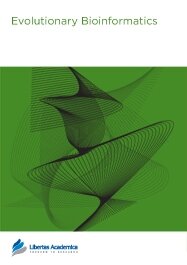

Publication Date: 11 Jan 2012
Type: Original Research
Journal: Evolutionary Bioinformatics
Citation: Evolutionary Bioinformatics 2012:8 105-117
doi: 10.4137/EBO.S8486

The ascomycete Botrytis cinerea is a phytopathogenic fungus infecting and causing significant yield losses in a number of crops. The genome of B. cinerea has been fully sequenced while the importance of horizontal gene transfer (HGT) to extend the host range in plant pathogenic fungi has been recently appreciated. However, recent data confirm that the B. cinerea fungus shares conserved virulence factors with other fungal plant pathogens with narrow host range. Therefore, interkingdom HGT may contribute to the evolution of phytopathogenicity in B. cinerea. In this study, a stringent genome comparison pipeline was used to identify potential genes that have been obtained by B. cinerea but not by other fungi through interkingdom HGT. This search led to the identification of four genes: a UDP-glucosyltransferase (UGT), a lipoprotein and two alpha/beta hydrolase fold proteins. Phylogenetic analysis of the four genes suggests that B. cinerea acquired UGT from plants and the other 3 genes from bacteria. Based on the known gene functions and literature searching, a correlation between gene acquision and the evolution of pathogenicity in B. cinerea can be postulated.
PDF (785.28 KB PDF FORMAT)
RIS citation (ENDNOTE, REFERENCE MANAGER, PROCITE, REFWORKS)
Supplementary Files 1 (2.11 MB ZIP FORMAT)
BibTex citation (BIBDESK, LATEX)
XML
PMC HTML
This is the fastest progress we have experienced from submission to acceptance. Reviews are fast, pertinent, and instructive. Every step of the process is visible and prompt, and every email is friendly and immediate. In all, it is an excellent experience to be published in Libertas Academica.

All authors are surveyed after their articles are published. Authors are asked to rate their experience in a variety of areas, and their responses help us to monitor our performance. Presented here are their responses in some key areas. No 'poor' or 'very poor' responses were received; these are represented in the 'other' category.See Our Results
Copyright © 2013 Libertas Academica Ltd (except open access articles and accompanying metadata and supplementary files.)
Facebook Google+ Twitter
Pinterest Tumblr YouTube